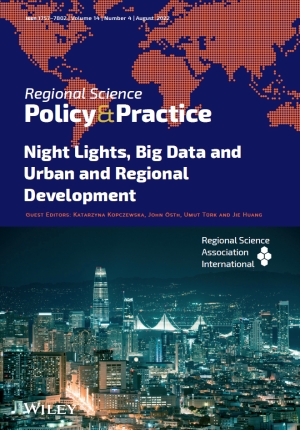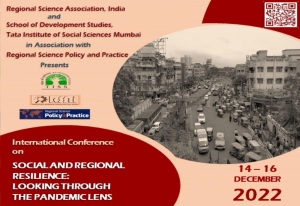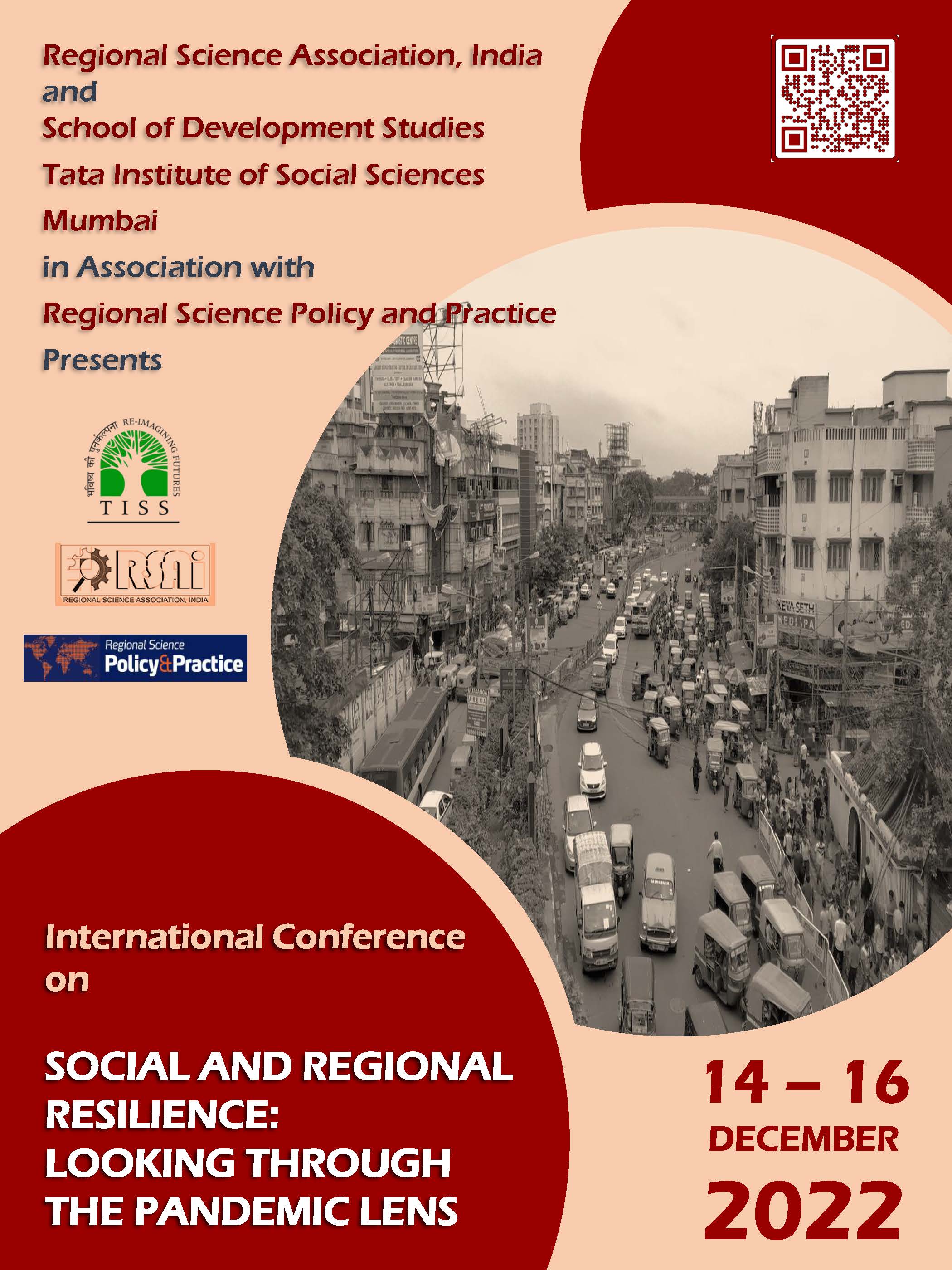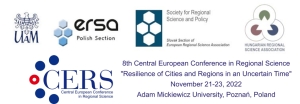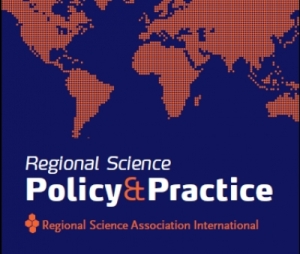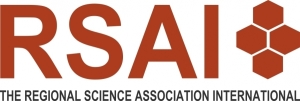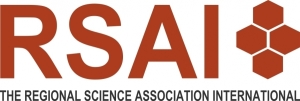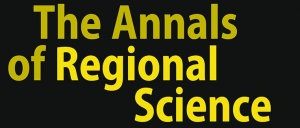Archives
Elisabete Martins
2023/2024 RSAI World Congress | Request for Proposals
2023/2024 RSAI World Congress | Request for Proposals
The Regional Science Association International (RSAI) aims to hold a world congress at least once every two years. Unfortunately, the last congress – in Marrakech in 2020 – had to be postponed to 2021, and held online, due to the outbreak of the COVID-19 pandemic. RSAI considers world congresses an important instrument for furthering its mission of global advancement of regional analysis and related spatial and areal studies for the benefit of society.
The RSAI calls for proposals to host a world congress in 2023/2024. Potential hosts are RSAI Supra-Regionals, Sections or Members that have a proven track record of hosting conferences and related events. A world congress may be held concurrently with another event or as a standalone event. Proposals must be submitted by Monday, October 31, 2022, 23:59 CET. Proposals are evaluated by the RSAI Council. A decision will be made at the RSAI Council meeting to be held in Montreal, during the annual NARSC meeting; depending on the quality of the proposals received, the RSAI reserves the right not to organize a congress in 2023, or to propose the organization for 2024. This document outlines the application process, organization and expected outcomes regarding the 2023/2024 world congress.
Prior RSAI World congresses
1980 1st – Cambridge Mass. (Harvard University), USA
1984 2nd – Rotterdam (Erasmus University), Netherlands
1989 3rd – Jerusalem (Kibbutz Ramat Rachel), Israel
1992 4th – Palma de Mallorca, Spain
1996 5th – Tokyo (Rissho University), Japan
2000 6th – Lugano, Ticino, Switzerland
2004 7th – Port Elizabeth, South Africa
2008 8th – Sao Paulo, Brazil
2012 9th – Timisoara, Romania
2018 10th Goa, India
2021 11th Marrakech, Morocco (online only)
Criteria for a successful 2023/2024 world congress
- The world congress should aim to have significant participation from members of Sections of all four supra-regional organisations – ERSA, LARSA, NARSC and PRSCO.
- The conference should also endeavor to attract regional scientists resident in countries in which no RSAI Section has yet been established. Subsidies may be available to selected applicants for participation through RSAI’s “Building Bridges” programme.
- The 2023/2024 World Congress may be held as a standalone event. Alternatively, proposals may suggest to organise it jointly or “back-to-back” with another event. Such a joint or back-to-back event could be an RSAI Section meeting, a supra-regional congress, or an event held jointly with other organizations with similar objectives or networks.
- The proposed dates of the congress must be such that they do not clash with other events that aim to attract the same regional science community, unless a joint conference is envisaged. The organizers will consult with the RSAI President and the RSAI executive Director in order to identify a mutually acceptable schedule for the event.
- The conference should be held at an easily accessible location in a globally accessible city.
- Accommodation should be available at the conference venue (when the conference is held at a hotel or convention centre). Alternatively, a range of affordable accommodation should be available within 15 minutes walking from the venue.
- The congress should include plenary sessions of interest to the global scientific community. The overall conference theme and the selection of keynote speakers should reflect this. Of course, local perspectives and concerns may be interwoven with global perspectives and concerns.
- Proposals should include initiatives to encourage participation from developing countries and from other countries in which no RSAI Sections have yet been established. RSAI can assist financially in meeting this objective through its “Building Bridges” programme but other funding initiatives (e.g. subsidies for participating postgraduate students) are also encouraged.
- The programme could also include one or more workshops for professional development of emerging scholars and postgraduate students, who may not be in a position to contribute a full paper to the formal scientific programme.
- The working language of the congress is English but proposals may include arrangements for simultaneous translation of plenary sessions where this is deemed to be desirable.
- Proposals should include a risk assessment regarding contingencies that could impact on the viability and success of the congress. Ways in which potential risks can be managed should be outlined.
- A detailed financial plan providing details on the economic aspects of the congress should also be submitted along with the candidature.
Organization of the congress
- For the services it provides, RSAI Office charges a commission equal to 20% of all registration fees received. The remaining registration revenue is transferred to the legal entity representing the LOC. Any anticipated sponsorship monies will be included in the budget.
- All arrangements for the organization of the World Congress will be formalized in a Memorandum of Understanding (MOU). The MOU will be signed by the President of RSAI, the Executive Director, the Chair of the LOC and the person representing the legal entity through which the LOC operates.
Application Process
- Proposals should address each of the 12 criteria for hosting the 2023/2024 world congress outlined above. However, it is understood that some of the information provided by the congress proposers (such as names of suggested keynote speakers, sponsorship, etc.) will be tentative at the time the proposal is submitted.
- Proposals should include a list of the key people involved in organizing the congress, a draft congress plan (including dates, location and schedule), a detailed draft budget (including a schedule of registration fees) and a suggested range of accommodations and charges.
- The acceptance of a proposal by RSAI Council does not constitute a binding agreement between the two parties. The subsequently drawn up MOU, which is guided by the proposal, will constitute a binding agreement.
- Proposals should be submitted by email to the Executive Director (This email address is being protected from spambots. You need JavaScript enabled to view it.; cc: This email address is being protected from spambots. You need JavaScript enabled to view it. by Monday, October 31, 2022, 23:59 CET.
- A decision regarding the 2023/2024 World Congress will be made by RSAI Council during the meeting to be held at the forthcoming NARSC congress in Montreal.
The Annals of Regional Science, Volume 22, Issue 1 Supplement - New Issue Alert
|
|
|
|||
|
|
|
|||
|
|
|
|||
|
|
|
|||
|
|
|
|||
|
|
|
|||
|
|
|
|||
|
|
|
||
|
|
|
|||
|
|
|
|||
|
|
|
|||
|
|
|
|||
|
|
|
|||
|
|
|
The latest issue of Regional Science Policy & Practice are available! Volume 14, Issue 4, August 2022
|
Regional Science Policy & Practice Pages: 695-1027 August 2022 Issue Edited by: Katarzyna Kopczewska, John Östh, Umut Türk, Jie Huang |
ISSUE INFORMATION
![]() Free Access
Free Access
Pages: 695-696 | First Published: 13 September 2022
INTRODUCTION
Regional development in Central and Eastern Europe and Asia
Katarzyna Kopczewska
Pages: 697-698 | First Published: 13 September 2022
ORIGINAL ARTICLES
Spatial spillover effects of corruption in Asian countries: Spatial econometric approach
Masoud Khodapanah, Zahra Dehghan Shabani, Mohammad Hadi Akbarzadeh, Mahboubeh Shojaeian
Pages: 699-717 | First Published: 31 October 2020
Tomasz Studzieniecki, Andrzej Jakubowski, Beata Meyer
Pages: 718-739 | First Published: 25 March 2021
A new planning instrument for urban development in Hungary: The modern cities program
Dávid Fekete
Pages: 740-758 | First Published: 21 April 2021
Harmonization of Russian supply chain management standards with EU requirements
Viktor Shestak, Viktor Konstantinov, Vladislav Govorov, Evgenia Budko, Oleg Volodin
Pages: 759-777 | First Published: 21 April 2021
Rural area sustainable development strategies on the basis of a cluster approach
Rasul Gusmanov, Eugene Stovba, Alfiya Kuznetsova, Iskander Gusmanov, Timur Taipov, Gulnara Muhametshina, Liana Akhmetova
Pages: 778-795 | First Published: 13 September 2021
The resilience of Russian Arctic cities 1989–2017
Andrey Polyachenko
Pages: 796-825 | First Published: 29 March 2022
INTRODUCTION
Night light indicators of regional economic activity
Katarzyna Kopczewska
Pages: 826-827 | First Published: 13 September 2022
ORIGINAL ARTICLES
Krittaya Sangkasem, Nattapong Puttanapong
Pages: 828-849 | First Published: 22 December 2020
Mapping poverty rates in Chile with night lights and fractional multinomial models
Simone Cecchini, Giovanni Savio, Varinia Tromben
Pages: 850-876 | First Published: 25 March 2021
Alexander Sheludkov, Alexandra Starikova
Pages: 877-890 | First Published: 10 June 2021
Predicting intra‐urban well‐being from space with nonlinear machine learning
Piotr Wójcik, Krystian Andruszek
Pages: 891-913 | First Published: 19 September 2021
INTRODUCTION
Modelling place attractiveness in the era of big and open data
John Östh, Umut Türk, Jie Huang
Pages: 914-915 | First Published: 13 September 2022
ORIGINAL ARTICLES
![]() Open Access
Open Access
Where is the consumer centre? A case of St. Petersburg
Konstantin Kholodilin, Irina Koroleva, Darya Kryutchenko
Pages: 916-938 | First Published: 25 June 2020
![]() Open Access
Open Access
House price valuation of environmental amenities: An application of GIS‐derived data
Liv Osland, John Östh, Viggo Nordvik
Pages: 939-959 | First Published: 06 December 2020
![]() Open Access
Open Access
Commuting patterns of preschool children in metropolitan Stockholm
Andreas Alm Fjellborg, Håkan Forsberg
Pages: 960-980 | First Published: 01 March 2021
![]() Open Access
Open Access
Intergenerational income mobility in Sweden: A look at the spatial disparities across municipalities
Alessandra Michelangeli, John Östh, Umut Türk
Pages: 981-1004 | First Published: 09 July 2021
![]() Open Access
Open Access
Stated locational preferences of Italian entrepreneurs: The underlying location factors
Dario Musolino, Wim Meester, Piet Pellenbarg
Pages: 1005-1021 | First Published: 18 November 2021
BOOK REVIEWS
Fadli Agus Triansyah
Pages: 1022-1024 | First Published: 06 June 2022
Amitrajeet A. Batabyal
Pages: 1025-1027 | First Published: 06 June 2022
53rd RSAIndia Conference | 14-16 December, 2022, TISS Mumbai, India
Conference CERS2022 - abstracts submission deadline prolongation until September 19
Dear Colleagues!
We would like to inform you that the extended deadline for submitting abstracts for CERS 2022 Conference (VIRTUAL) is September 19th 2022!
The European Regional Science Association – Polish, Slovak and Hungarian Sections, and Adam Mickiewicz University in Poznań (Poland) invite scholars, experts, and administration professionals to participate in the 8th Central European Conference in Regional Science, with the main theme "Resilience of cities and regions in an uncertain time" that will be held online on 21-23rd November 2022.
The extended deadline for Abstract Submission is September 19, 2022. Please note that there is a limit of two presentations per participant. Abstracts should be submitted using the abstract submission portal.
You can also register to the Conference using the registration portal. Early bird registration is until September 30th.
For information on abstract submission, please visit the CERS 2022 Conference website cers.amu.edu.pl. The list of more than 20 themes, special sessions and young scientist session is available at the conference webpage.
The conference is open to a diverse worldwide audience, including academics, experts, and policy makers. It aims to bring together research, ideas, concepts, and experiences and provide a welcoming forum for discussing research and presenting different points of view on the contemporary challenges of cities and regions.
The themes which will be addressed focus on the challenges of meeting the development of urban and regional systems in an uncertain time. Topics such as the economic, social, and environmental challenges in urban, rural, and regional development and transition in uncertain times are essential issues that the CERS 2022 Conference will consider.
If you have any questions, do not hesitate to contact us This email address is being protected from spambots. You need JavaScript enabled to view it.
On behalf of the Organizing Committee
WRSA: Reminder for Paper Submission - 2023 Annual Meeting in Big Island, Hawaii
Dear WRSA Members and Friends,
This is a friendly reminder for the paper submission for our 62nd Annual Meeting in Big Island, Hawaii from Feb 15th to Feb 18th, 2023. For those wanting the information now, here are the key details (or you can find more about our meeting here!):
Paper Submission: Papers should be uploaded to the WRSA website by October 15, 2022, although as in past years the "deadline" will be extended until mid-November. Remember that program invitations are only issued on the basis of full papers, not abstracts or outlines. Draft papers are sufficient for the October deadline, so long as we have a complete version in hand by January 15th, 2023.
Hotel Reservations: Our meeting hotel is Hilton Waikoloa Village located in Big Island, HI, one of the most beloved meeting spots among our members. Located on the sunny, scenic Kohala Coast, the oceanfront resort offers a taste of the island life full of culture, poolside relaxation, and a chance to meet marine wildlife up close. At Hilton Waikoloa Village, you can enjoy the magic of Hawaii, an oasis dotted with lagoons, pools, water slides, and a wide variety of restaurants and bars. Our negotiated daily room rate is $239 plus applicable taxes and a $15 resort fee (reduced from $45 for our group). Compare our discounted rate to the regular daily room rate of $585 plus applicable taxes and a $45 resort fee. See the “Hotel Information” link on the WRSA website. The hotel has agreed to honor our special room rate three days prior to and three days following our meeting, based on availability. Please note: after January 13, 2023, the hotel will no longer honor our special room rate! Be sure to book early!
Tiebout Prize: Advisors and Ph.D. students alike are reminded that October 15 is the hard deadline for submissions for the 37th Annual Tiebout Prize in Regional Science. Visit the WRSA website for full details. Papers co-authored with faculty advisors are acceptable; however, the primary author must meet the Tiebout student requirements and the bulk of the substantive work and contribution of the paper must have come from the student. REQUIRED: Submitted pdfs of the paper must include a letter from the faculty advisor confirming that these requirements have been met.
Student Conference Assistants: WRSA is seeking several students to assist with meeting registration in Big Island, HI. In exchange for 10-15 hours of volunteering at the registration desk, students will receive a complete rebate of their preregistration fees (worth $150, to be processed as a refund following the meeting). Additionally, volunteering students will be able to benefit from a discounted daily staff room rate of $179 (with a roommate volunteer, it will be $89.50 plus tax and a daily resort fee of $7.50). All student volunteers should stay at our conference hotel, Hilton Waikoloa Village. Contact WRSA via email (This email address is being protected from spambots. You need JavaScript enabled to view it.), if you're interested.
Session Chairs and Paper Discussants: Planning to come to Big Island, Hawaii, and won’t be presenting a paper? We are always VERY happy to assign you a session chair role or paper discussant duties if you’re willing. Just drop us an email (This email address is being protected from spambots. You need JavaScript enabled to view it.) to let us know your preferences and availability constraints.
Feel free to contact me (This email address is being protected from spambots. You need JavaScript enabled to view it.) with any questions.
All the best,
Jaewon
Program Chair, 2023 Annual Meeting
Executive Director, WRSA
Call for Applications - Editor-in-Chief, Regional Science Policy & Practice (RSPP)
The Regional Science Association International (RSAI) seeks candidates for the position of editor-in-chief of the official journal of the association, Regional Science Policy & Practice (RSPP), starting Jan. 1, 2023 for a three-year term.
RSPP is an international journal that publishes high quality papers in applied regional science that explore policy and practice issues in regional and local development. It welcomes papers from a range of academic disciplines and practitioners including planning, public policy, geography, economics and environmental science and related fields. Papers should address the interface between academic debates and policy development and application. RSPP provides an opportunity for academics and policy-makers to develop a dialogue to identify and explore many of the challenges facing local and regional economies.
Candidates should be RSAI members in good standing, with a wide knowledge of urban and regional phenomena as well as distinguished records of scholarly contributions internationally. Candidates should also possess strong intellectual vision, leadership and organizational abilities, and experience relevant to editing a journal in the field of regional science.
The editor’s primary responsibility is to continue to enhance the journal’s quality, reputation, and scholarship. The editor will be expected to strengthen the journal’s competitive position in support of RSAI’s worldwide mission.
The editor will recommend an international team of associate editors and a book review editor to help administer the peer review process, promote excellence in content and advance editorial initiatives.
The RSPP editor reports to the RSAI Council.
Detailed information on responsibilities and on the process for applying for the editor-in-chief position is available below.
Letters of interest must be received within October 16, 2022.
Specific duties of the Editor-in-Chief and journal editorial office include:
- Maintaining and updating the aims and scope of the journal, editorial policies, and guidelines to authors.
- Overseeing the manuscript peer review process through the publisher’s on-line submission portal in an unbiased, confidential, and timely manner.
- Checking proofs and revisions to proofs.
- Preparing and forwarding accepted manuscripts to the publisher’s production department.
- Coordinating standards and practices across managing editors and managing the workload of each member of the editorial team.
- Maintaining close and regular contact with the publisher on marketing and production matters.
- Initiating and responding to correspondence with authors, managing editors, and reviewers.
- Recruiting, selecting, and appointing RSPP board members that reflect the diversity of regional science and addressing any performance issues.
- Soliciting special issues, selecting guest editors, and providing advice and assistance to guest editors.
- Adhering to the page budget and financial structures set by RSAI. RSAI and the publisher are responsible for managing production, layout, printing, subscriptions, pricing and funding initiatives for society publications.
- Appointing associate editors and a book review editor (to be approved by RSAI Council). The editorial team (editor and associate editors) will be comprised of RSAI members with high stature and respect in the community, and with the expertise to manage the breadth of regional science.
- Serving as a non-voting ex officio member of RSAI Council and other regional science governing bodies.
- Reporting to RSAI Council through regular reports at Council meetings.
- Reporting to the journal editorial board through board meetings held at least once a year.
Application process:
Interested individuals should submit an application package that includes:
- A succinct letter of interest and qualifications, containing an indication of the editorial team;
- A vision statement for the next three to six years of publication of RSPP.
- A curriculum vitae;
- The names and contact information of three references.
All requested information should be submitted by e-mail as a single PDF file to the Executive Director, This email address is being protected from spambots. You need JavaScript enabled to view it., copying Elisabete Martins, This email address is being protected from spambots. You need JavaScript enabled to view it., in the e-mail.
Election of RSAI new Councillor at large
Dear RSAI members,
By RSAI Constitution, nominations for Councilors-at-large “shall be made by the Council after solicitation of suggestions from the members of the Association”. At the end of 2022, the position on the RSAI Council held by Prof. Daniela-Luminita Constantin (Bucharest University of Economic Studies) will expire; we therefore inform that the proposals for a councilor-at-large can be sent to the address This email address is being protected from spambots. You need JavaScript enabled to view it. within September 30, 2022. Candidatures will have to include a professional CV and a photo.
The election of a councilor-at-large for the period 2023-2025 will take place electronically by RSAI members during the month of October 2022.
Best regards,
Call for RSAI Program Nurturing new talent 2023
Nurturing new talent 2023
The RSAI aims to continue promoting the development of Regional Science by nurturing new talent in 2023. The council has therefore pledged resources to co-finance workshops and summer institutes intended to provide substantive training to pre-doctoral researchers, including the presentation of their work and receiving feedback from senior scholars and their peers. It is expected that the selected workshops and institutes will have considerable international geographical coverage.
Organizers of workshops and summer schools fulfilling the above aims are encouraged to submit a two-page case for support, using the included template, within October 9, 2022 to the RSAI secretariat (This email address is being protected from spambots. You need JavaScript enabled to view it.). Individuals are encouraged to consult with their national and supranational sections to allow better coordination among different initiatives.
All applications will be reviewed by the Committee and will have to be formally approved by the RSAI Council. Their decision will be final.
Call for Papers - Special Issue on Climate Change, Carbon Neutrality: The Role of Spatial Economics
“Climate change is a long-term change in the average weather patterns that have come to define Earth’s local, regional and global climates.” (NASA, 2022, accessed August 2nd, 2022). The consequent temperature increases, rising sea levels, ice losses, and increased frequency and severity in extreme weather events (such as hurricanes, heatwaves, wildfires, droughts, floods and land use/land cover changes) significantly affect regional economic development, resource management, urban and regional planning, and the spatial distribution of population and economic activities. It is believed that human activities, particularly fossil fuel burning, is a key driver of climate change since the mid-20th century. Therefore, carbon neutrality has been proposed as a countermeasure to climate change.
To achieve the proposed goal of carbon neutrality, it is important to understand the driving forces and regional economic implications of carbon intensity reduction. To date, transportation, energy and manufacture sectors are still the main contributors to greenhouse emissions in both China and the United States. Standard economic analysis of the externality problems applies here. More importantly, the spatially heterogeneous distributions of climates, population and socio-economic activities generate significant spatial spillover effects. The spatially correlated climate conditions, the spatially connected regional economies, and the interactions between the climate and regional economic systems raise important theoretical and empirical challenges. For instance, how will the spatial correlation and interactions affect the local climate and the consequent optimal design of regional policies?
Any regional breakdowns of global carbon emissions will likely create evident regional disparities. There has been a surge of literature that highlights the importance of spatial agglomeration in affecting environmental performance at a different dimension. The spatial organization of economic activities plays an important role in shaping energy consumption and subsequent carbon emission. Regardless of compact development in cities or sprawled development in sub- and exurban areas, the spatial organization of population and economic activities are closely related to energy consumption either through agglomeration economies in urban areas or the lack of scale economy in sub- and exurban areas. Similarly, as firms make their location choices, the consideration of competition, economies of scale and economies of scope tend to create spatially correlated carbon emissions. Both international and regional trades further complicate the spatial distribution of carbon emissions. These challenging questions offer great opportunities for spatial economists to contribute their expertise and insights for both basic and applied policy-relevant research.
Within this context, the objective of this Special Issue will be on
- how spatial economics could contribute to the regional impacts of climate change, carbon emission and policy designs for carbon neutrality,
- how the climate change, carbon emission and carbon neutral policies affect regional development and disparities,
- how spatial configuration influences energy-based demand and carbon emission,
- what cross-cutting insights may be gained from investigating the role of space in shaping carbon abatement.
This special issue seeks to advance our understanding of the spatial dimensions of climate change, carbon emission and the underlying mechanisms of spatial interactions.
We encourage the submission of research articles with any of the following characteristics (but not limited to):
- Climate change, carbon emissions, carbon-neutral policies and their impacts on the regional development/disparities
- Heterogeneity in carbon emission across space
- Household/firm/industry location and greenhouse gases emission
- Compact cities and energy consumption
- Sprawled development, energy consumption and carbon emission
- Trade, transportation and carbon emission
- Urban planning and energy efficiency
- Spatial model of carbon behavior
- Climate change, urban forms and environmental performance
Special issue submission:
The submission deadline for this special issue is May 31 2023. We seek manuscripts including theoretical models of economic geography and empirical studies on driving forces of carbon emission as well as identifying the impacts of global warming on economic and social outcomes. Authors should submit complete manuscripts by the submission deadline via the Annals of Regional Science online submission system at https://www.editorialmanager.com/arsc/default1.aspx
Guest Editors:
Yong Chen– Department of Applied Economics, Oregon State University, E-mail: This email address is being protected from spambots. You need JavaScript enabled to view it.
Jian Wang – SILC Business School, Shanghai University, E-mail: This email address is being protected from spambots. You need JavaScript enabled to view it.
Xiwei Zhu – School of Economics, Zhejiang University, E-mail: This email address is being protected from spambots. You need JavaScript enabled to view it.
https://www.springer.com/journal/168/updates/23353338
About Us
The Regional Science Association International (RSAI), founded in 1954, is an international community of scholars interested in the regional impacts of national or global processes of economic and social change.

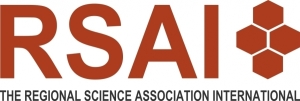
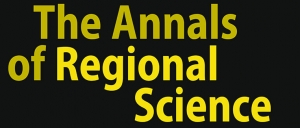
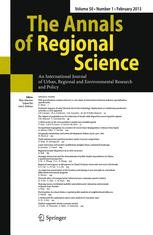 The Annals of Regional Science.
The Annals of Regional Science. 